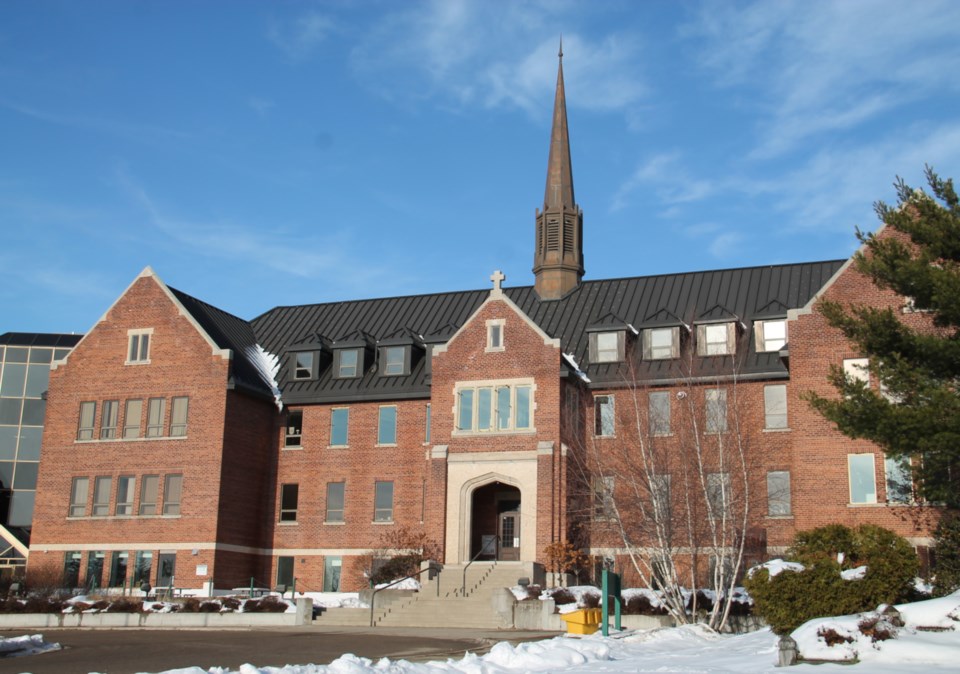Some Ontario universities disregarded actions the province’s auditor general recommended two years ago to reduce their reliance on international students before the issue reached a breaking point at the national level.
Last year, a decade-plus-long trend in the growth of international students’ enrolment outpacing that of Canadian students at universities in the country continued. In Ontario, according to a spokesperson for the province’s Colleges and Universities Minister, Nolan Quinn, the post-secondary sector as a whole has been “rebalancing” since the federal government sharply curtailed its issuance of international student visas earlier this year.
Two years ago, Ontario’s auditor general looked into the financial management in Ontario universities. As the auditor’s office explained in its November 2022-released report, it sought to spotlight a collection of small and medium-sized universities that reported recent potentially worrying financial positions. Four of the province’s publicly funded universities were spotlighted as a result: Algoma University, Nipissing University, Ontario Tech University and the University of Windsor.
One of the issues the auditor general’s office focused on in assessing the financial well-being of the four universities was their reliance on international students.
In early 2019, during its first year in power, Premier Doug Ford’s government announced a 10 per cent reduction in tuition for Ontario students attending the province’s publicly funded colleges and universities. It has also frozen these students' tuitions, with some exceptions, ever since.
In its 2022 report, the auditor general wrote, “The impact of the domestic student tuition reduction and freeze in Ontario has resulted in universities increasing their focus on international student tuition fees.”
“A high reliance on international student enrolment by universities poses risks outside of the minister’s and the universities’ control, such as the potential loss of a large number of students in individuals from one country were to suddenly not be able to obtain study permits (visas) or otherwise be restricted from entering Canada,” the report continued.
Over the five years before the release of its 2022 report, the auditor general’s office found three of the four universities it examined — Nipissing being the exception — “focused on international recruitment and utilized international tuition fees to increase revenues and subsidize their bottom lines.”
Nipissing, as a result, was the only university that was “not economically dependent on international students for its tuition revenue and operations," the auditor general wrote two years ago.
The auditor general’s office also found that universities often rely on international students from “one or two countries,” which “increases the risk that external factors, such as a global economic downturn or foreign policy shift, could significantly impact a university’s financial health.”
The 2022 report included several recommendations apiece for Algoma, Ontario Tech and Nipissing universities, as well as for Windsor, that were meant to help the institutions mitigate their reliance on international students.
Over the last couple of years, affordability — and specifically that of housing — has been a near-constant issue for many governments in Canada. The supply of housing hasn’t kept up with the country’s population growth, which has been almost entirely immigration-driven.
As a result of political pressure earlier this year, Prime Minister Justin Trudeau’s government announced an abrupt slice to the number of post-secondary study permits it planned to grant to international students this year and next. Until then, in each year that Trudeau was prime minister, the federal government issued more of these visas than the last — excluding only 2020, the first year of the COVID-19 pandemic.
A few weeks later, in late February of this year, the Ford government announced it would be spending nearly $1.3 billion to “stabilize” the province’s colleges and universities. “That is on top of the more than $5 billion in operating funding we put into the sector every year so they can get Ontario students into rewarding careers that address the province’s current and future labour market needs,” Dayna Smockum, director of communications for Ontario’s colleges and universities minister, said in a statement.
“We’re sitting down with every single publicly funded institution in the province through our strategic mandate agreement process to better understand their enrolment trends and financial outlooks,” added Quinn’s spokesperson.
The auditor general’s office publishes follow-ups to its reports two years after their publication. In the followup to its probe into universities’ finances that it published as part of its 2024 annual report last week, the office found the schools it focused on hadn’t — as a whole — made significant progress toward implementing its recommendations around international student recruitment, including diversification and tracking.
Algoma University had made “little or no progress” toward implementing the recommendations focused on diversifying where it recruits international students from. A spokesperson for the university said in an email that it “remains committed” to them.
“These recommendations will strengthen our institution further. … Algoma University is observing the expected trends with international student enrolment declining for the 2024-25 academic year, while domestic enrolment is experiencing modest growth, with a 7.4 per cent increase during the Spring and Fall terms across all campuses,” its spokesperson said. “The university will continue to focus on stabilizing overall enrolment across our campuses.”
Ontario Tech University — which wasn’t identified by the auditor as having international students from too few countries — had made “little or no progress” toward implementing the auditor’s suggestions for improving its international student tracking. A spokesperson for Ontario Tech said in an email that it’s “actively working on collecting the relevant international graduate data (and) has spent the first year reviewing best practices and will be developing a survey that will go out in the future.”
Neither Nipissing University’s nor the University of Windsor’s spokespeople responded to The Trillium’s questions about their progress toward implementing the auditor’s recommendations before publication of this story.




